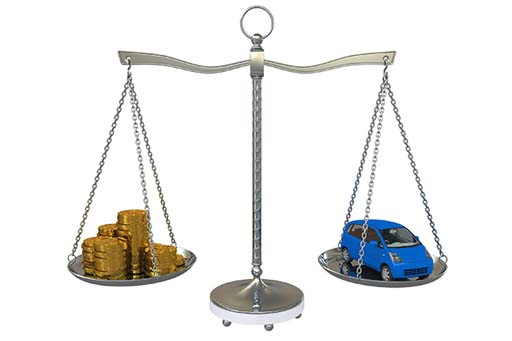1.1.5 Prioritising
Thinking about goals is one starting point for financial planning, but the achievement of those goals may be constrained by the resources that a household has, together with its commitments.
For most households, achieving their goals is subject to the financial constraint of the resources that are available. Some households have goals that are not as affected by the available resources. In these cases the resources are not functioning as a constraint on financial plans. This may be because the household is rich, or because it has goals that are not financially demanding. Other households have goals that are severely constrained by available resources. In these cases, money difficulties are a constant source of anxiety and severely inhibit goals. Here the main goal might be basic financial survival.
So, an important question is whether all the goals can be achieved, given the financial constraints. Whether a person is able simultaneously to take a holiday next year, help the homeless, get married and buy a flat depends on their financial constraints. If the person can’t afford to do all these things, then choices have to be made. There’s a trade-off between using money and resources in some ways rather than in others. A trade-off involves giving up something in order to have something else that is preferred: taking lavish holidays means not being able to buy a flat. Which is more important? It’s necessary to prioritise.
- Take another look at your list of three most important goals. Have you listed the goals in any particular order?
- Try listing the goals in order of priority for you, given your circumstances and resources.
- Are there trade-offs between your goals?
- Has this prompted you to rethink any of your goals?
When doing (or buying) something involves giving up something else, the real cost is what would have been done (or bought) instead. This is called the opportunity cost. For example, the opportunity cost of buying a car is what would have been done (or bought) instead. The money might be spent on other things, or it might be saved or given away; it might be used to reduce or pay off existing debt. The opportunity cost of buying the car is the best alternative that is forgone (done without) in order to buy the car, such as buying a holiday with the money instead.
Time, as well as money, is a scarce resource. Most of us can’t do all the things we want to partly because we don’t have the time. The opportunity cost of you spending your time studying this course is what you would have done with your time if you hadn’t been doing this. It’s the best alternative use of your time. (If you wouldn’t have done anything else, then you’re not giving up anything to study the course, and so the opportunity cost would be zero.) Some busy people are particularly ‘time-poor’, even though they may be rich in a monetary sense.
Sometimes trade-offs have to be made between doing something now and doing it in the future. If you spend money now, it’s not available for later. There’s a tendency for people to place a greater value on £100 to spend now than on £100 to spend in one or two years’ time. You’ll find there are good economic reasons for this – especially because of inflation, which you’ll look into in Week 2.
But there are also rewards for not spending now in order to have more to spend later. If you’re hoping to build up a target amount for a future purchase or a pension, then just a few years’ delay in starting to put the money aside can greatly increase theamountyou have to put aside to be sure of meeting the target.
In addition, many financial products involve trade-offs of their own. For instance, financial investment tends to involve a trade-off between risk and return: the higher the expected return, the higher the risk attached. Which is the right product depends not only on how much risk – if any – can be afforded, but also on how risk averse a person is. Risk-aversion is the preference for a lower, but more certain, return rather than a higher, but less certain, return, other things being equal.

